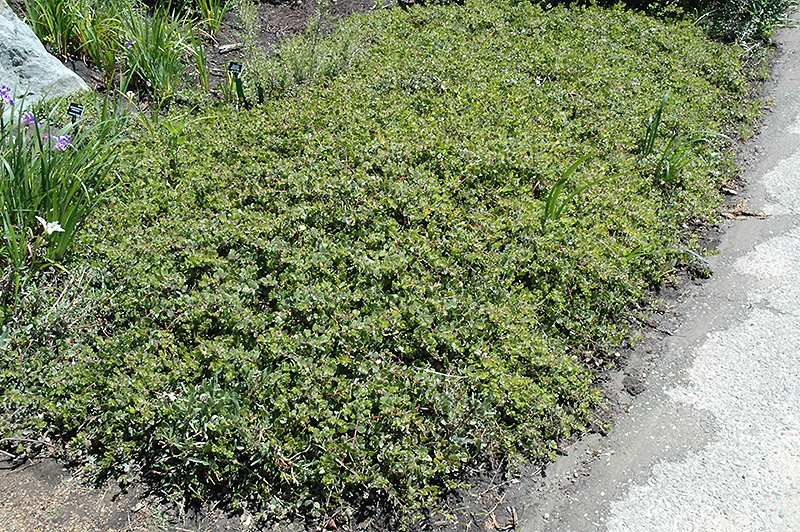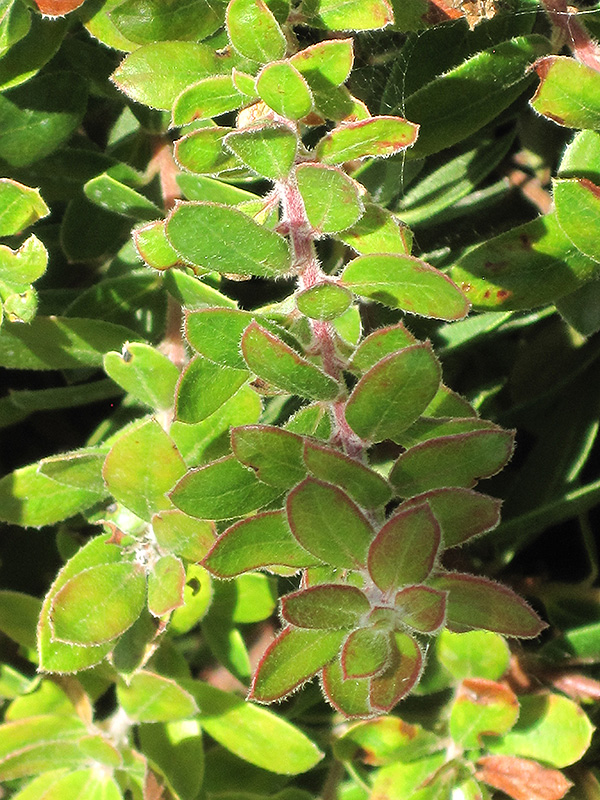Plant Finder
Little Sur Manzanita
Arctostaphylos edmundsii
Height: 15 inches
Spread: 6 feet
Sunlight:
![]()
![]()
Hardiness Zone: 6b
Description:
A great selection for use as groundcover for a larger area; blooming is impressive in a massed area with multitudes of dainty soft pink flowers; leaves are light green, and edged in red when young; likes poor acidic soils
Ornamental Features
Little Sur Manzanita features dainty nodding pink bell-shaped flowers at the ends of the branches in late fall. It has forest green evergreen foliage which emerges light green in spring. The glossy oval leaves remain forest green throughout the winter.
Landscape Attributes
Little Sur Manzanita is a dense multi-stemmed evergreen shrub with a ground-hugging habit of growth. Its relatively fine texture sets it apart from other landscape plants with less refined foliage.
This is a relatively low maintenance shrub, and should only be pruned after flowering to avoid removing any of the current season's flowers. It has no significant negative characteristics.
Little Sur Manzanita is recommended for the following landscape applications;
- Accent
- Mass Planting
- Groundcover
Planting & Growing
Little Sur Manzanita will grow to be about 15 inches tall at maturity, with a spread of 6 feet. It tends to fill out right to the ground and therefore doesn't necessarily require facer plants in front. It grows at a slow rate, and under ideal conditions can be expected to live for approximately 30 years.
This shrub does best in full sun to partial shade. It is very adaptable to both dry and moist growing conditions, but will not tolerate any standing water. It is very fussy about its soil conditions and must have sandy, acidic soils to ensure success, and is subject to chlorosis (yellowing) of the foliage in alkaline soils, and is able to handle environmental salt. It is somewhat tolerant of urban pollution. This species is native to parts of North America.





